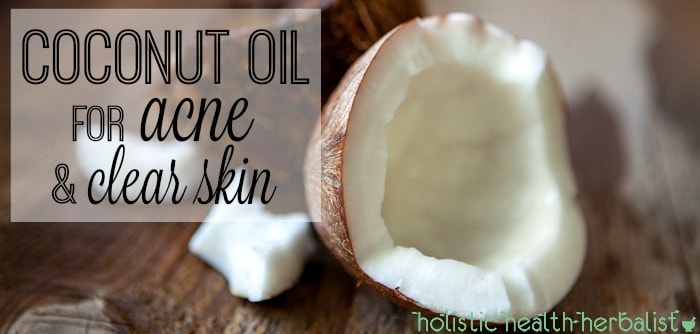
Coconut oil for acne? You’re joking, right? Nope. I’m not. If you have paid any attention to the health blogosphere then you know how amazing coconut oil is. Everything from oil pulling with coconut oil to shaving your legs with it has been proven to work wonders and it’s no different for acne sufferers.
So, does coconut oil help acne? is coconut oil good for acne at all? Well, for some, it really does work, it just depends on your skin type and how you use it.
For example, I can't use coconut oil topically on my face, but I CAN use it internally with good results that show through to my skin. others can slather it on their entire body, no problem.
In either case, this is how to use coconut oil for acne both inside and out.
How to Use Coconut Oil for Acne and Clear Skin
You can use coconut oil for acne and clear skin in two primary ways:
1. Coconut Oil Internally
Coconut oil is full to the brim with lauric and caprylic acids which are known to be metabolized by the body into potent antibacterial, antifungal, antimicrobial, and antiviral components. These medium-chain fatty acids are important for acne sufferers because they fight the underlying causes of acne, such as candida overgrowth, inflammation, autoimmunity, and hormonal imbalance.
According to the book Eat Fat. Lose Fat. and The Coconut Oil Miracle, eating 3 TB of coconut oil daily can have some rather substantial positive benefits like more energy, whiter teeth, supple skin, and of course less acne! Coconut oil also helps kill parasites which improve poor digestion and boosts your immune system so it can fight infections like acne vulgaris better. You can read more about the five ways I use coconut oil here.
Some of the ways I add coconut oil to my diet daily are:
• Bullet-proof coffee
• By the spoonful (I like this brand)
• Cooking and stir fry (get refines coconut oil here)
• Fat bombs
• Homemade chocolate
• In baking recipes (like my cinnamon coconut custard cake!)
• In smoothies and shakes
• Mix it into oatmeal, nut butter, or yogurt
• Take a coconut oil supplement (so you don’t have to taste it!)
2. Coconut Oil Topically
So I know this sounds nuts, but oil is GOOD for your skin. The key is finding the right oil for your skin type and sticking to it. That said, coconut oil is actually well tolerated by most skin types so it’s worth trying in my book.
I used to be so afraid of applying oil to my face. Surely the oil will break me out even worse right? Not so. Sure, I had to experiment here and there, but once I found my holy grail I stuck to it and haven’t looked back since.
The great thing about coconut oil is it has some special properties to it that no other oil has. It’s antibacterial, antifungal, AND it helps fight inflammation and redness. When coconut oil is applied to the skin, certain beneficial bacteria that are present on the skin’s surface convert lauric and caprylic acid into monolaurin and monocaprin. These new compounds are what help reestablish your skin’s natural acid mantle and prevent acne-causing bacteria from growing, leaving your skin more and more clear as time goes on.
For those of you who suffer from sensitive acne prone skin, this is the oil to try. No more chemical-laden acne lotions and potions that strip your skin dry. Coconut oil can do all of these things without the irritation because of its medium-chain fatty acids, allowing it to easily absorb into the skin.
Feel like an oil slick after applying coconut oil? No problem! You just need to use less. The key to doing this is to spritz your face with a good toner; I prefer rose water (learn how to make your own rose water here), and using it as a way to spread less oil over a larger area. It works wonders! Plus, rose water is great for balancing your skin’s natural PH which is super important for clear skin. You can read about the amazing benefits of rose water here.
Do You Need to Apply Coconut Oil Every Day?
This depends on your skin. If you suffer from dry flaky skin then, by all means, try applying coconut oil at least once a day after cleansing. If your skin is oily, you may only need to apply coconut oil every few days. It all depends on how your skin likes coconut oil.
One thing I love to do is to add 1 drop of tea tree essential oil for some extra acne fighting power. This is perfect to do after a flight or while traveling to keep your skin clear and supple.
Refined or Unrefined?
Unless you really detest the smell of coconut, go with the unrefined coconut oil. The reason for this is because the unrefined version has more of the antimicrobial properties you need for an effective acne treatment.
The refined version may still have these properties, but it may greatly depend on what brand you use. If you really can’t stand the smell but still want to use unrefined coconut oil, try adding 1 drop of essential oil like frankincense, rose, tea tree, or lavender. Not only will these essential oils help mask the smell of coconut, they will also lend their own amazing benefits.
Is Coconut Oil Really Good For My Skin?
Just with everything else, what works for one person may not work for you. The key is to experiment. Find out what amount works best and how often your skin likes the coconut oil applied. Using coconut oil for acne is great, but if it breaks you, move on to the next oil until you find the one YOUR skin likes best. An easy way to do this is by checking out my post that includes coconut oil comedogenic rating (plus over 80 others!) if you're unsure about an oil's comedogenic scale.
Have you used coconut oil for acne and clear skin? How was your experience?
For more coconut oil relates articles, look below:
The Complete List of Comedogenic Oils
Egg-Free Coconut Paleo Oatmeal
Cinnamon Coconut Custard Cake
Four Thieves Coconut Oil Deodorant
DIY Coconut Oil Hair Treatment
Top 5 Ways to Use Coconut Oil


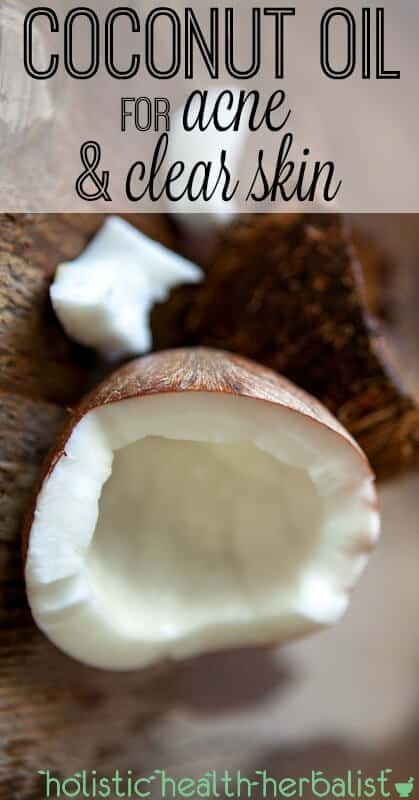
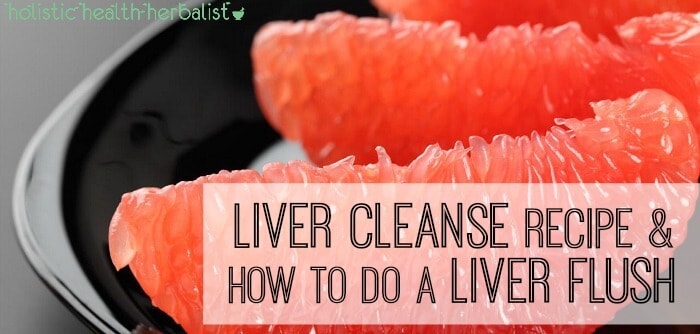

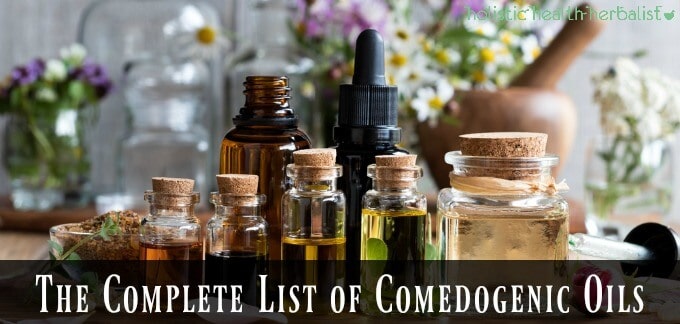
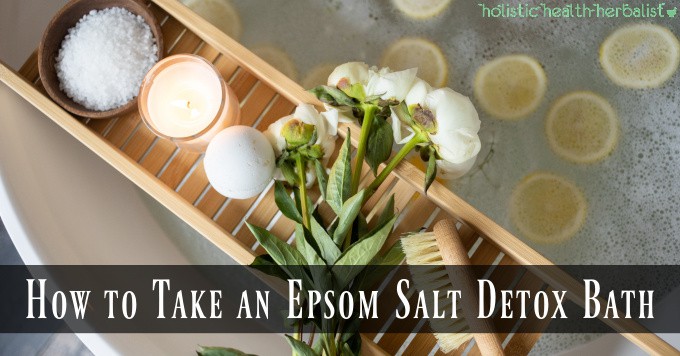
bendy says
My face has so,many scars ,can I use coconut oil
Tash says
I would look into tamanu oil for scars 🙂
Sivani says
Thank you for sharing this information. I have tried it myself and have seen real positive results.
Wendy C. says
Hi,
Coconut oil is one of the important things when it comes to skin care. I use coconut oil when making DIY skincare recipe when treating acne. So effective.
Cindy says
I had heard of the benefits of coconut oil for stretch marks and dark spots. But I never considered using coconut oil as a dietary supplement. So I bought a jar of it a couple weeks ago and, I promise you, my digestive problems have gone completely away. And I have seen a big reduction in pimples popping up too! Definitely not a coincidence. Awesome advice! Thank you!
Tash says
That's awesome Cindy! Thank you for sharing your experience! 🙂
Jenny - Support Your Beauty says
Hi Tash,
I use coconut oil for my hair and my skin. But please allow me to share this. I've never had a problem using it, and I've been using this oil for more than a decade now, but when my younger sister entered high school, she started using the Coco oil as her moisturizer. She was just beginning to know the benefits of taking care of her skin. But to our surprise, she started getting breakouts, and her acne was the worst kind. I did a few research and found out that Coco oil is not best for people with oily skin. It has level 4 of comedogenic which causes clogged pores and promotes the growth of pimples. I have dry skin, and coco oil has been my magic oil since I was young. But it may not be the best for everyone. Thank you!
Tash says
This is VERY true! I was able to use it for a time, but my skin is also very oily. Before too long I had to switch to something else. Now I use hemp seed oil and it's my holy grail carrier oil! 🙂
Jenny - Support Your Beauty says
Thanks for the reply Tash! I will have to tell my sister about that hemp seed oil, and I know she'd be glad I did! Haha! She's currently into Aloe Vera treatments, it does well on her, but it takes too long to heal (she's very impatient). Thanks for sharing!
Jamie Dalton says
First I am also addicted to bullet proof coffee and bullet proof hot chocolate. So Yummy!!! I've been using coconut oil on my skin for around 6 months and it's been a life saver. My skin has literally never looked so good!
Tash says
Glad to hear it Jamie! I've been making bullet proof London Fog and it's amazing!
D S Lovell says
Really great article! Heard lots of good things about this . I suffered for years with really bad acne but had fantastic results and my acne cleared fairly quickly!
Anya@Prepare+Nourish says
I love that coconut oil is so versatile.
Tash says
It really is! <3
linda spiker says
Great information (as always). Pinned to two boards!
foodhuntersguide says
so good to know...I'm going to try it.